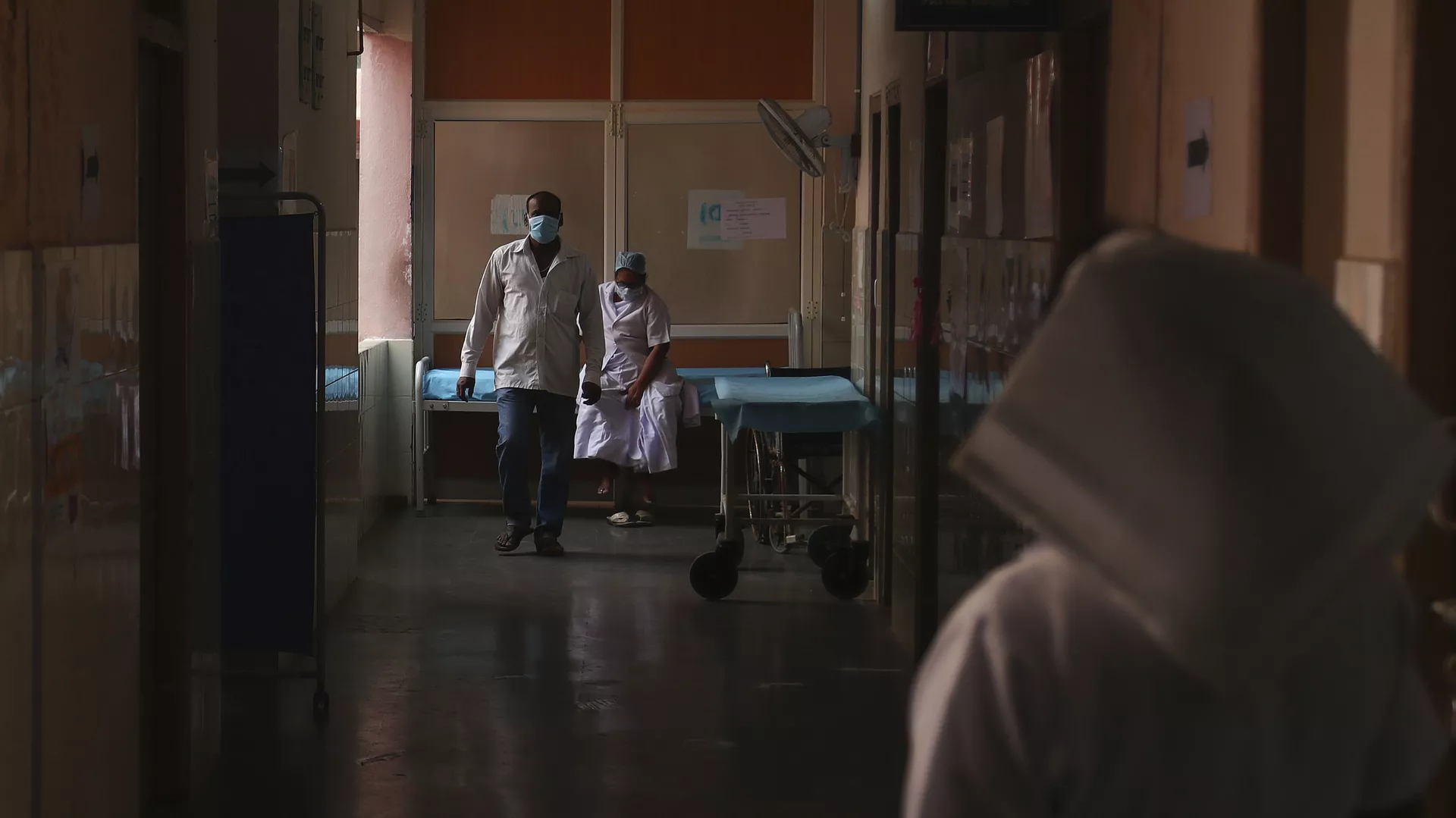https://sputnikglobe.com/20211118/health-becoming-priority-in-india-as-a-policy-due-to-covid-19-pandemic-indian-public-health-expert-1090797547.html
Health Becoming Priority in India as a Policy Due to COVID-19 Pandemic: Indian Public Health Expert
Health Becoming Priority in India as a Policy Due to COVID-19 Pandemic: Indian Public Health Expert
Sputnik International
Dr. Kumar, who continues to lead and implement several health projects with the Indian government on HIV, Tuberculosis, and Visceral Leishmaniasis, says that... 18.11.2021, Sputnik International
2021-11-18T04:00+0000
2021-11-18T04:00+0000
2022-07-19T10:40+0000
world health organization (who)
public health
healthcare
covid-19
interviews
https://cdn1.img.sputnikglobe.com/img/07e5/03/12/1082382782_0:0:2831:1592_1920x0_80_0_0_c36f81dd59ed4b1dc465682cf01399bc.jpg.webp
Although the number of COVID-19 cases is declining in India, there are several other public health issues that the country is facing right now. In Delhi, the dengue outbreak is worsening and the national capital has reported over 5,000 cases this year. Another Indian state, Punjab, is witnessing its worst dengue crisis with over 20,000 cases this year. A similar pattern of other vector-borne diseases is being seen across the country. In Delhi, as the pollution levels are rising, experts have warned that it might aggravate breathing issues as well as severe respiratory conditions. According to doctors, threats to people with existing respiratory ailments, especially chronic obstructive pulmonary diseases (COPD) cases, are on the rise. Earlier this year, the devastating second wave of coronavirus pandemic crippled the Indian health care system as people were struggling for basic medical resources. Sputnik reached out to Dr. Preeti Kumar, Vice President, Public Health System Support at the Public Health Foundation of India (PHFI), to discuss the current COVID-19 situation in the country, rising non-COVID ailments as well as the Indian healthcare sector's preparedness towards future health crises.Dr. Kumar has played a crucial role in the healthcare sector while working with the World Health Organization (WHO), India's Health Ministry, and The Global Fund to Fight AIDS, Tuberculosis, and Malaria (GFATM). Sputnik: The COVID-19 cases are receding in India as well as in some of the worst affected states of the country. In view of this situation, do you think India is heading in the right direction? Since there has been a surge in COVID-19 cases in other parts of the world, how can this affect India? Dr. Preeti Kumar: As rightly pointed out, other than in Europe, the pandemic is receding in all other parts of the world. However, this broad global picture hides a considerable level of heterogeneity in the level of epidemics within regions and countries. For example, certain states in the US and also in India (northeast India) continue to have a higher number of cases than the global average. Currently, India seems to be moving in the right direction, provided we do not have a post-festival surge of cases. However, any steady movement in the positive direction will be based on a multi-pronged strategy of high vaccination coverage, masking, good ventilation and social distancing, and an alert surveillance system that does not slacken testing of suspected cases. Sputnik: We are at the end of the grand festival season in India and last year there was an exponential surge in cases after these festivals, especially in Delhi. Do you think a similar pattern could occur this year too? Dr. Preeti Kumar: It is impossible to predict. Only data can inform. So, if positivity rates stay low despite a good level of testing, we can be optimistic that we will be able to tide it over. Seroprevalence data seems to suggest a high level of seroconversion in certain populations, particularly urban areas. Sputnik: There have been suggestions of an impending third wave in India. What is your opinion about this third wave? Do you think it might not occur in India? Dr. Preeti Kumar: Any pandemic results at the intersection of a host, agent, and environmental factors. At this stage, the most critical factor will be whether the virus mutates further or not. Our vaccination progress and masking with social distancing should be able to take care of the other two factors, provided the vaccines stay effective, which is most likely. Experience from Europe suggests that vaccines are holding well and the epidemic is worse in countries with poor vaccination coverage. Sputnik: The whole world is in a raging battle against COVID-19 and the main goal presently seems to be its eradication. But in India there has been a surge in other public health issues and non-COVID ailments. What might be the reason? Do you think if we keep neglecting these issues, they might turn into something bigger? Dr. Preeti Kumar: There is no aim nor was there ever one to eradicate COVID-19. It is not possible. Our aim is to bring down the level of infection so low that transmission stops – either through vaccination or non-pharmaceutical means as done earlier through masking and social distancing and even lockdowns. Some form or the other of the virus will continue to be in circulation and we hope it becomes less pernicious and behaves like a common cold. One of the fallouts of COVID-19 has been the impact on accessibility and availability of diagnosis, care, and treatment of other illnesses and ailments through delays. We must note that a very large percentage of the population accesses healthcare through the private sector. Thus closure of private clinics and hospitals did impact access to chronic healthcare needs and, particularly, OPD services etc. In contrast, the public health system resources – human resources, diagnostic labs, medicines – were totally geared, rightfully, to addressing the pandemic. It was a competition for limited resources to address immediate priorities. However, a fall out of COVID-19 has been this enormous realisation that there is a critical need to invest in and strengthen our health system infrastructure, human resource capacities, surveillance systems. There is a more holistic investment in health – pharma sector, scale-up of diagnostic facilities in the public sector, PMJAY investments, digital health etc. Hopefully, this will enable us to be better prepared in the future. Sputnik: There has been an increase in vector-borne diseases like dengue in several parts of India, especially Delhi. Over 5,000 cases have been reported in Delhi this year. What might be the cause of this sudden surge? Do you think the pandemic has contributed in any way? Dr. Preeti Kumar: Not really. Most communicable disease outbreaks tend to be cyclical. Moreover, dengue has been growing globally, year on year. This allows even low-resourced health systems to be alert, take preventive action and prevent hospitals from being overloaded by the case numbers. Even the best systems buckle under a load of cases that they are not designed to handle. Sputnik: In recent months, many cases of "mysterious fever" were reported in states like Madhya Pradesh, Uttar Pradesh, and Haryana, especially among children. Some people viewed it as the beginning of a third wave. Later, as per the government, some cases were diagnosed as scrub typhus, dengue, etc. What is the reason behind people contracting these diseases? Has the pandemic influenced our immunity, making us susceptible to these conditions? Dr. Preeti Kumar: Scrub typhus, dengue – are endemic in parts of our country and small outbreaks occur in different states over the years. A good sign is that people are becoming more aware of these conditions, more are being reported. Sputnik: The pandemic has highlighted several loopholes as well as opportunities to improve in several areas of India's public health system and healthcare sector. How can we use these lessons to handle other diseases and public health issues? What is the biggest takeaway from this pandemic for the Indian healthcare sector? Dr. Preeti Kumar: As I mentioned earlier, a strengthened and effective public health surveillance system is critical to address outbreaks of new and relatively unknown diseases, but which have a huge public health impact. The second is a strong primary healthcare system that is closest to the community, [which] is absolutely essential. We are still more than 60 percent rural. We need a strong network of primary health care providers who know their community - for early detection, diagnosis and treatment as well as for effective prevention measures to be taken. Sputnik: India is pacing up in its vaccination programme and the numbers are rising every day. If we talk about achieving herd immunity, where does India stand? Dr. Preeti Kumar: Herd immunity is only through immunisation. You do not want an infection to go through a population to achieve seroconversion in the community. So, we need more than 80 percent of the population to be vaccinated before we can talk about herd immunity – but we are making good progress.
https://sputnikglobe.com/20211102/less-than-10500-covid-19-cases-detected-in-india-first-time-since-february-1090407838.html
https://sputnikglobe.com/20210811/more-mutations-of-covid-delta-variant-may-be-behind-surge-in-breakthrough-cases-in-india-reports-1083582210.html
https://sputnikglobe.com/20211114/ongoing-coronavirus-pandemic-has-worsened-existing-challenges-facing-indian-diabetics-1090718895.html
https://sputnikglobe.com/20211021/dengue-fever-engulfs-delhi-with-surge-in-cases-among-children-1090092732.html
https://sputnikglobe.com/20210915/mysterious-illness-engulfs-indias-haryana-state-as-it-claims-nine-childrens-lives-1089087916.html
Sputnik International
feedback@sputniknews.com
+74956456601
MIA „Rossiya Segodnya“
2021
Sushmita Panda
https://cdn1.img.sputnikglobe.com/img/07e5/05/12/1082926186_0:0:2048:2048_100x100_80_0_0_d8e733f41e1eea1fbef0df754cf8e279.jpg.webp
Sushmita Panda
https://cdn1.img.sputnikglobe.com/img/07e5/05/12/1082926186_0:0:2048:2048_100x100_80_0_0_d8e733f41e1eea1fbef0df754cf8e279.jpg.webp
News
en_EN
Sputnik International
feedback@sputniknews.com
+74956456601
MIA „Rossiya Segodnya“
Sputnik International
feedback@sputniknews.com
+74956456601
MIA „Rossiya Segodnya“
Sushmita Panda
https://cdn1.img.sputnikglobe.com/img/07e5/05/12/1082926186_0:0:2048:2048_100x100_80_0_0_d8e733f41e1eea1fbef0df754cf8e279.jpg.webp
world health organization (who), public health, healthcare, covid-19, interviews
world health organization (who), public health, healthcare, covid-19, interviews
Health Becoming Priority in India as a Policy Due to COVID-19 Pandemic: Indian Public Health Expert
04:00 GMT 18.11.2021 (Updated: 10:40 GMT 19.07.2022) Dr. Kumar, who continues to lead and implement several health projects with the Indian government on HIV, Tuberculosis, and Visceral Leishmaniasis, says that India needs to build a strong network of primary healthcare experts, especially in rural areas, for effective treatment and preventive measures.
Although the number of COVID-19 cases is declining in India, there are several other public health issues that the country is facing right now.
In Delhi, the dengue outbreak is worsening and the
national capital has reported over 5,000 cases this year. Another Indian state, Punjab, is witnessing its worst dengue crisis with over 20,000 cases this year.
A similar pattern of other vector-borne diseases is being seen across the country.
In Delhi, as the
pollution levels are rising, experts have warned that it might aggravate breathing issues as well as severe respiratory conditions.
According to doctors, threats to people with existing respiratory ailments, especially chronic obstructive pulmonary diseases (COPD) cases, are on the rise.
Earlier this year, the devastating second wave of coronavirus pandemic crippled the Indian health care system as people were struggling for basic medical resources.
Sputnik reached out to Dr. Preeti Kumar, Vice President, Public Health System Support at the Public Health Foundation of India (PHFI), to discuss the current COVID-19 situation in the country, rising non-COVID ailments as well as the Indian healthcare sector's preparedness towards future health crises.
Dr. Kumar has played a crucial role in the healthcare sector while working with the World Health Organization (WHO), India's Health Ministry, and The Global Fund to Fight AIDS, Tuberculosis, and Malaria (GFATM).
Sputnik: The COVID-19 cases are receding in India as well as in some of the worst affected states of the country. In view of this situation, do you think India is heading in the right direction? Since there has been a surge in COVID-19 cases in other parts of the world, how can this affect India?
Dr. Preeti Kumar: As rightly pointed out, other than in Europe, the pandemic is receding in all other parts of the world. However, this broad global picture hides a considerable level of heterogeneity in the level of epidemics within regions and countries.
For example, certain states in the US and also in India (northeast India) continue to have a higher number of cases than the global average. Currently, India seems to be moving in the right direction, provided we do not have a post-festival surge of cases.
However, any steady movement in the positive direction will be based on a multi-pronged strategy of high vaccination coverage, masking, good ventilation and social distancing, and an alert surveillance system that does not slacken testing of suspected cases.
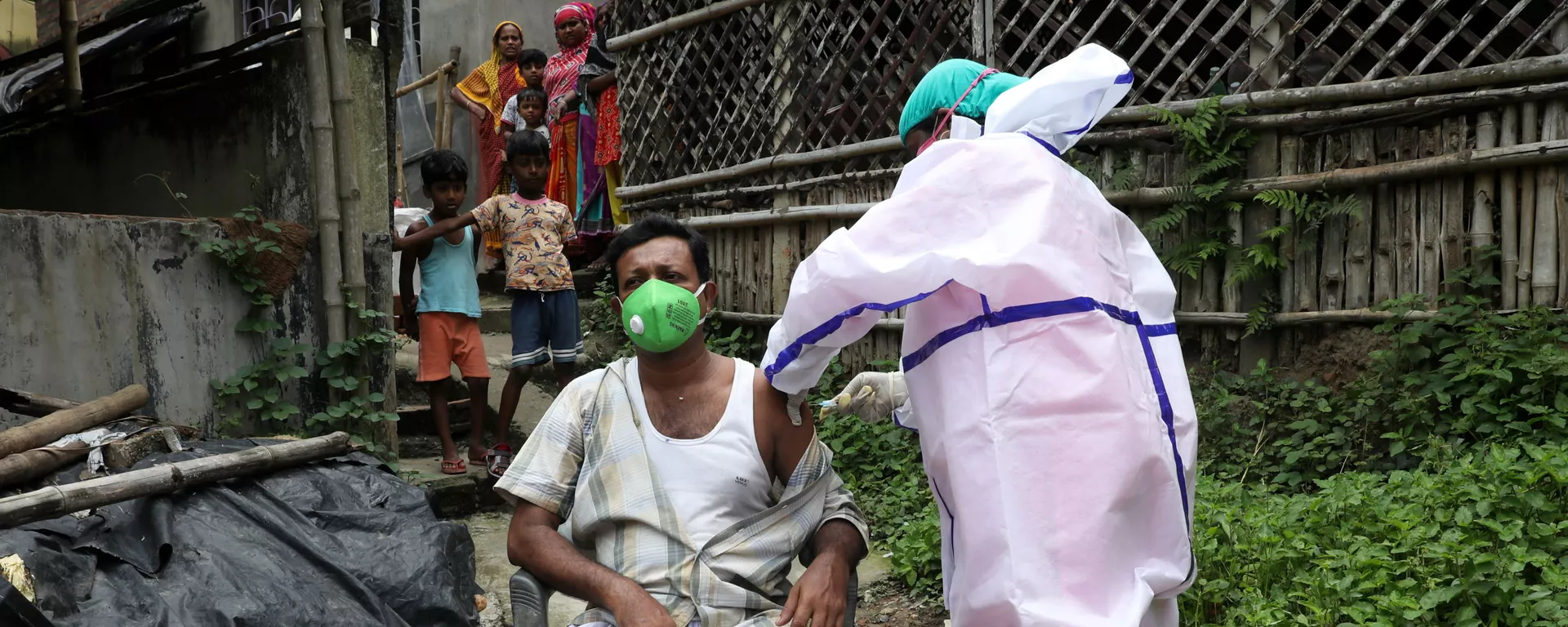
2 November 2021, 07:16 GMT
Sputnik: We are at the end of the grand festival season in India and last year there was an exponential surge in cases after these festivals, especially in Delhi. Do you think a similar pattern could occur this year too?
Dr. Preeti Kumar: It is impossible to predict. Only data can inform. So, if positivity rates stay low despite a good level of testing, we can be optimistic that we will be able to tide it over. Seroprevalence data seems to suggest a high level of seroconversion in certain populations, particularly urban areas.
Sputnik: There have been suggestions of an impending third wave in India. What is your opinion about this third wave? Do you think it might not occur in India?
Dr. Preeti Kumar: Any pandemic results at the intersection of a host, agent, and environmental factors. At this stage, the most critical factor will be whether the virus mutates further or not.
Our vaccination progress and masking with social distancing should be able to take care of the other two factors, provided the vaccines stay effective, which is most likely.
Experience from Europe suggests that vaccines are holding well and the epidemic is worse in countries with poor vaccination coverage.
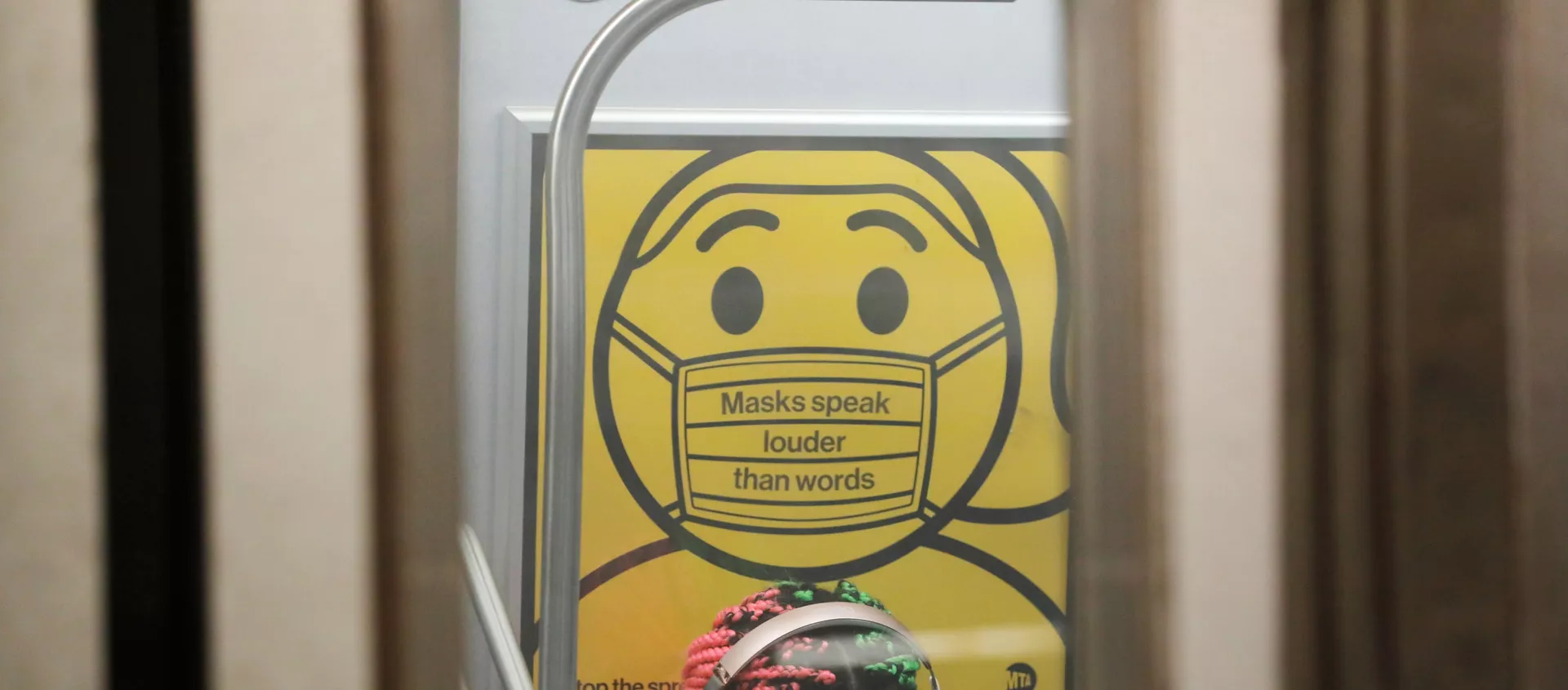
11 August 2021, 17:39 GMT
Sputnik: The whole world is in a raging battle against COVID-19 and the main goal presently seems to be its eradication. But in India there has been a surge in other public health issues and non-COVID ailments. What might be the reason? Do you think if we keep neglecting these issues, they might turn into something bigger?
Dr. Preeti Kumar: There is no aim nor was there ever one to eradicate COVID-19. It is not possible. Our aim is to bring down the level of infection so low that transmission stops – either through vaccination or non-pharmaceutical means as done earlier through masking and social distancing and even lockdowns.
Some form or the other of the virus will continue to be in circulation and we hope it becomes less pernicious and behaves like a common cold.
One of the fallouts of COVID-19 has been the impact on accessibility and availability of diagnosis, care, and treatment of other illnesses and ailments through delays.
We must note that a very large percentage of the population accesses healthcare through the private sector. Thus closure of private clinics and hospitals did impact access to chronic healthcare needs and, particularly, OPD services etc.
In contrast, the public health system resources – human resources, diagnostic labs, medicines – were totally geared, rightfully, to addressing the pandemic. It was a competition for limited resources to address immediate priorities.
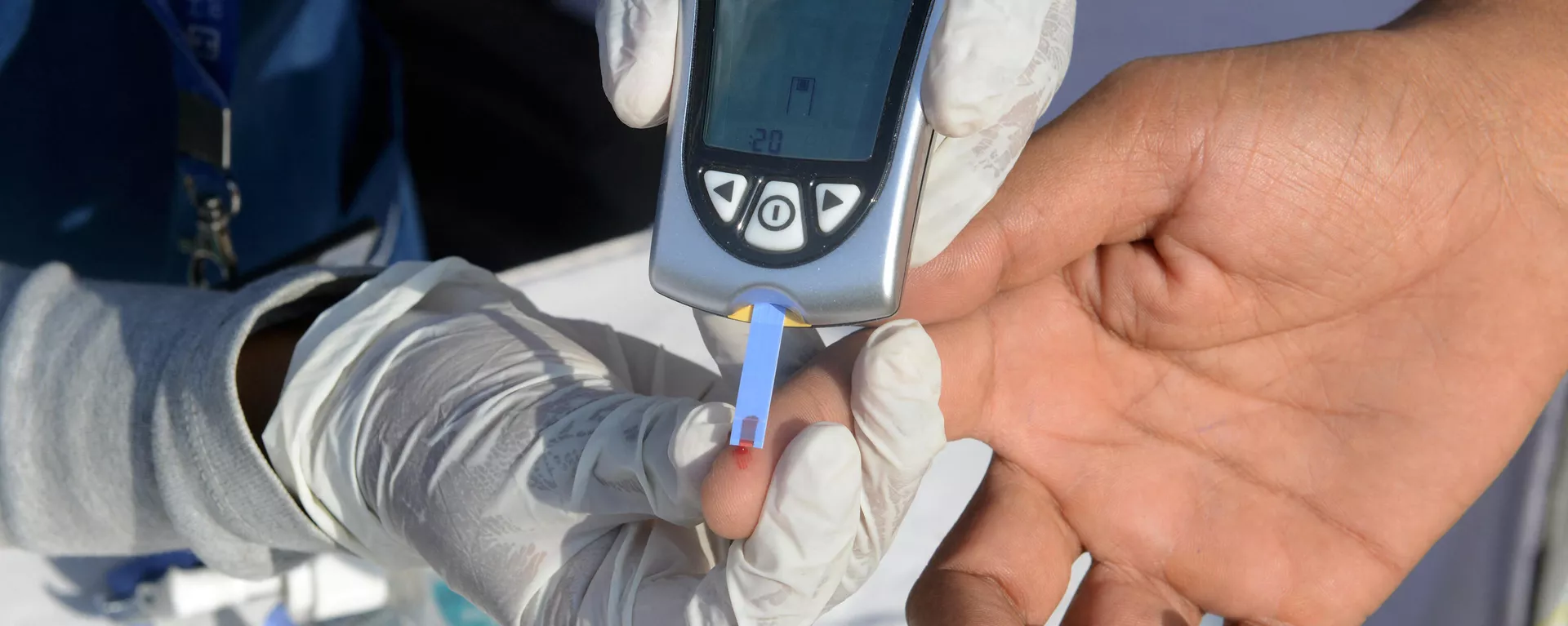
14 November 2021, 08:54 GMT
However, a fall out of COVID-19 has been this enormous realisation that there is a critical need to invest in and strengthen our health system infrastructure, human resource capacities, surveillance systems.
As I mentioned earlier, health has never been a high policy subject. It is now beginning to emerge as one.
There is a more holistic investment in health – pharma sector, scale-up of diagnostic facilities in the public sector, PMJAY investments, digital health etc. Hopefully, this will enable us to be better prepared in the future.
Sputnik: There has been an increase in vector-borne diseases like dengue in several parts of India, especially Delhi. Over 5,000 cases have been reported in Delhi this year. What might be the cause of this sudden surge? Do you think the pandemic has contributed in any way?
Dr. Preeti Kumar: Not really. Most communicable disease outbreaks tend to be cyclical. Moreover, dengue has been growing globally, year on year.
The key to addressing any outbreak – and they probably are only likely to increase with change in climate, rapid urbanisation, higher migrations – is a well-functioning surveillance system, which enables the system to identify and catch a disease early.
This allows even low-resourced health systems to be alert, take preventive action and prevent hospitals from being overloaded by the case numbers. Even the best systems buckle under a load of cases that they are not designed to handle.
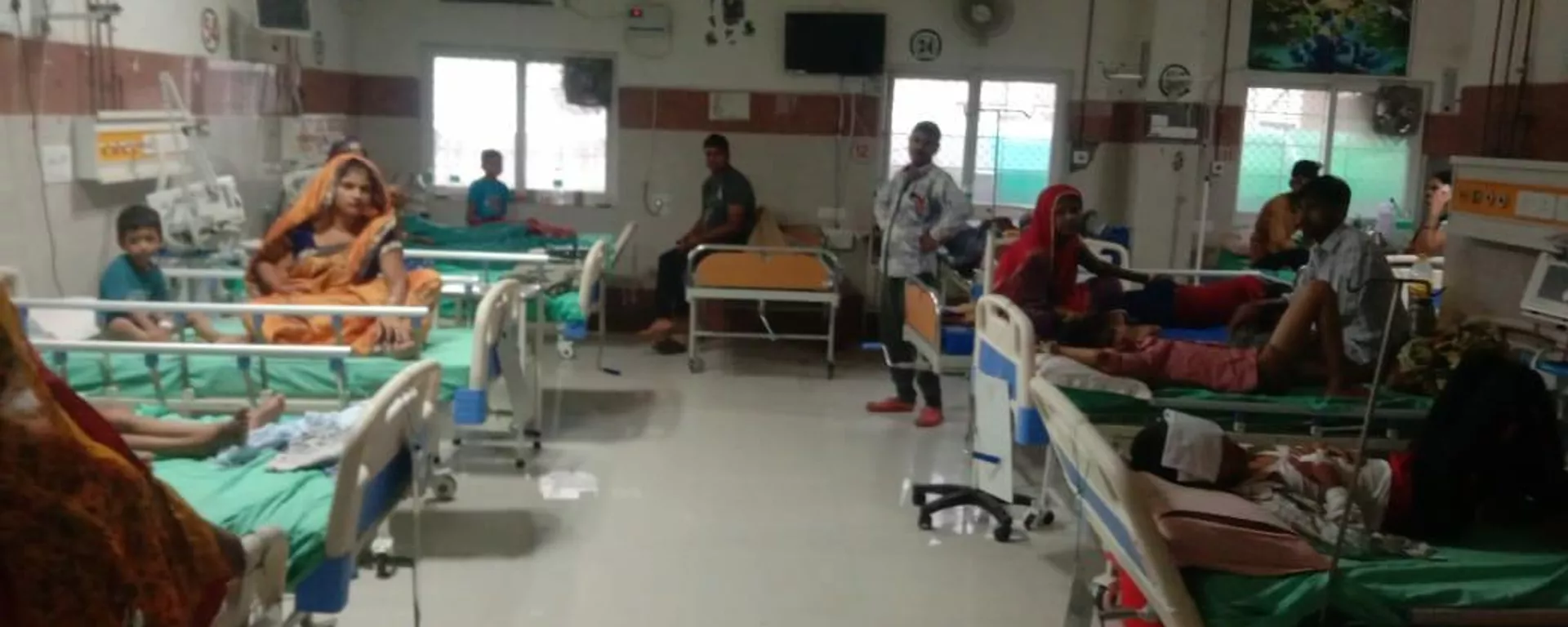
21 October 2021, 11:20 GMT
Sputnik: In recent months, many cases of "mysterious fever" were reported in states like Madhya Pradesh, Uttar Pradesh, and Haryana, especially among children. Some people viewed it as the beginning of a third wave. Later, as per the government, some cases were diagnosed as scrub typhus, dengue,
etc. What is the reason behind people contracting these diseases? Has the pandemic influenced our immunity, making us susceptible to these conditions? Dr. Preeti Kumar: Scrub typhus, dengue – are endemic in parts of our country and small outbreaks occur in different states over the years. A good sign is that people are becoming more aware of these conditions, more are being reported.
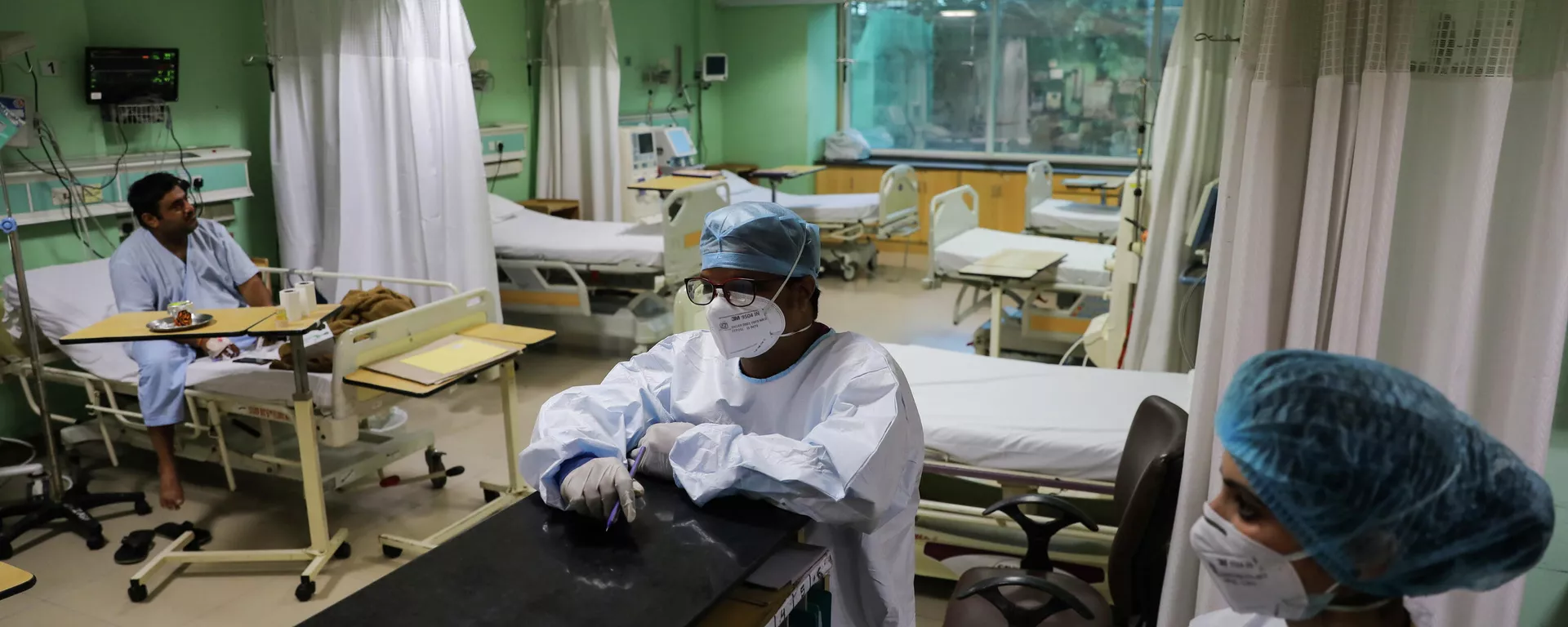
15 September 2021, 14:24 GMT
Sputnik: The pandemic has highlighted several loopholes as well as opportunities to improve in several areas of India's public health system and healthcare sector. How can we use these lessons to handle other diseases and public health issues? What is the biggest takeaway from this pandemic for the Indian healthcare sector?
Dr. Preeti Kumar: As I mentioned earlier, a strengthened and effective public health surveillance system is critical to address outbreaks of new and relatively unknown diseases, but which have a huge public health impact.
The second is a strong primary healthcare system that is closest to the community, [which] is absolutely essential. We are still more than 60 percent rural. We need a strong network of primary health care providers who know their community - for early detection, diagnosis and treatment as well as for effective prevention measures to be taken.
Sputnik: India is pacing up in its vaccination programme and the numbers are rising every day. If we talk about achieving herd immunity, where does India stand?
Dr. Preeti Kumar: Herd immunity is only through immunisation. You do not want an infection to go through a population to achieve seroconversion in the community. So, we need more than 80 percent of the population to be vaccinated before we can talk about herd immunity – but we are making good progress.
